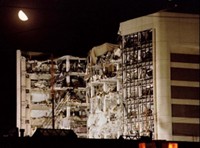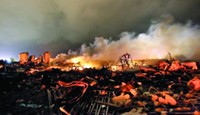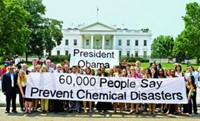Advertisement
Grab your lab coat. Let's get started
Welcome!
Welcome!
Create an account below to get 6 C&EN articles per month, receive newsletters and more - all free.
It seems this is your first time logging in online. Please enter the following information to continue.
As an ACS member you automatically get access to this site. All we need is few more details to create your reading experience.
Not you? Sign in with a different account.
Not you? Sign in with a different account.
ERROR 1
ERROR 1
ERROR 2
ERROR 2
ERROR 2
ERROR 2
ERROR 2
Password and Confirm password must match.
If you have an ACS member number, please enter it here so we can link this account to your membership. (optional)
ERROR 2
ACS values your privacy. By submitting your information, you are gaining access to C&EN and subscribing to our weekly newsletter. We use the information you provide to make your reading experience better, and we will never sell your data to third party members.
Safety
Need To Know
by Rudy Baum
March 16, 2009
| A version of this story appeared in
Volume 87, Issue 11
STORIES IN BOTH this and last week's issues of C&EN touch on the subject of how to handle sensitive information that the public has an interest in knowing about but which could also be of use to terrorists or other criminals. There exists a fine balance that needs to be maintained in such instances, and the two articles illustrate well how difficult it is to maintain that balance.
In the March 9 issue, Associate Editor Britt Erickson reported on challenges facing the Food & Drug Administration (see page 26). She pointed out that "Recent problems associated with adulterated heparin drugs, as well as with melamine in milk powder and pet food, have also led FDA to take a closer look at what it calls economically motivated adulteration (EMA)." FDA is investigating what products are at high risk for EMA; the agency is "planning to solicit more input at a public meeting this spring and is particularly interested in hearing from chemists who can think like criminals," according to an FDA official.
That said, FDA's advisory Science Board maintains that the "last thing the agency should do is hold a public meeting to discuss creative ways to adulterate the food and drug supply," Erickson reports. Work was done in the wake of the 9/11 terrorist attacks to identify vulnerabilities to the food supply, and that information is useful in combating EMA. It's common sense that FDA should talk to "chemists who can think like criminals," but it does not behoove the agency to have those talks in public.
By contrast, this week's issue contains a story by Senior Correspondent Jeff Johnson that examines a case in which a chemical company seems to be using an antiterrorism law to shield itself from public scrutiny of safety procedures at one of its plants (see page 40).
The Chemical Safety & Hazard Investigation Board (CSB) has long been one of Johnson's beats at C&EN. For an agency that has no regulatory authority, a pittance for a budget, and a checkered history, CSB plays an important role in ferreting out the causes of major accidents at industrial facilities and pressuring companies to correct unsafe practices. As Johnson writes, CSB's "accident reports and videos have had wide influence on companies, encouraging them to improve their safety performance, eliminate dangerous practices, and better control use of toxic chemicals."
CSB is currently investigating the Aug. 28, 2008, fire and explosion at the Bayer CropScience facility in Institute, W.Va., that killed two workers, shut down the plant, and terrified several thousand people living nearby. Johnson reports that in early February, CSB was well into planning for a March public hearing on the accident when it was contacted by Bayer attorneys. At a subsequent meeting, Johnson writes, "Bayer attorneys cited the Maritime Transportation Security Act of 2002, an antiterrorism law that requires companies with plants on waterways to develop security plans to minimize the threat of a terrorist attack." The law covers 3,200 facilities, including 320 chemical and petrochemical facilities, one of which is Bayer's Institute plant.
Bayer argued that CSB's planned public meeting could reveal sensitive plant-specific security information, according to CSB Chairman John Bresland. "The board got cold feet and canceled the meeting," Johnson reports.
It may well be that it is not in our national security interest for details of the layout of Bayer's Institute facility to be discussed at a public meeting. It may well be that the Maritime Transportation Security Act of 2002 would be violated if CSB were to hold such a hearing. As I observed above, there are circumstances where the public's right to know needs to be balanced against the need to limit the distribution of information that could be misused by terrorists or criminals.
As reported by Johnson, however, Bayer's overall handling of the accident suggests that the company is using the national security argument to shield itself from unwanted scrutiny of its practices at the Institute plant. That simply should not be countenanced.
Thanks for reading.
Views expressed on this page are those of the author and not necessarily those of ACS.





Join the conversation
Contact the reporter
Submit a Letter to the Editor for publication
Engage with us on Twitter